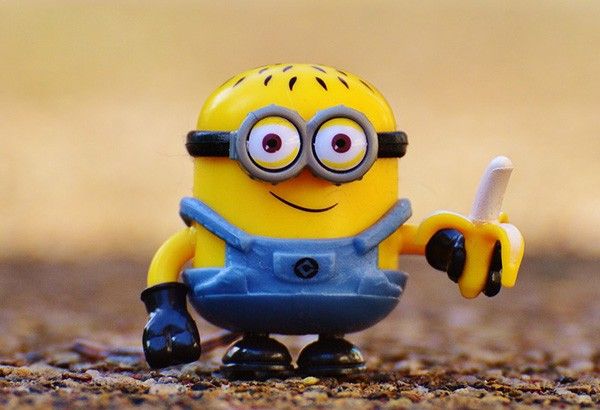Is COVID-19 airborne? Can bananas save you? DOH sets record straight

MANILA, Philippines — Cardinal rule: If you don’t have time to fact check on your own, don’t click “share” just yet!
Granted, asking techie Gen Z and Millennial relatives is the next best thing to independently check whether the posts we share on social media is true.
But helping out in the global fight against the novel coronavirus disease 2019 (COVID-19) pandemic means staying informed and protecting yourself against what the World Health Organization (WHO) calls “infodemics.”
“Infodemics are an excessive amount of information about a problem, which makes it difficult to identify a solution,” WHO spotlighted in a situation report earlier this month.
“Infodemics can spread misinformation, disinformation and rumors during a health emergency. [These] can hamper an effective public health response and create confusion and distrust among people.”
Fortunately, local health authorities are exhausting all means to contain COVID-19 in the Philippines while tirelessly educating Juan Dela Cruz about the new disease.
Here are some common myths about COVID-19 which Health Assistant Secretary Maria Rosario Vergeire debunked in a public briefing on Wednesday.
Is COVID-19 airborne?
Responding to reports that the virus which causes COVID-19 can be transmitted through air, Vergeire said that understanding the context matters.
"Kahapon po, naglabas ng parang statement na galing sa isang article from the World Health Organization na sinasabi nila it can be transmitted sa may airborne na transmission. Pero i-qualify po natin 'to para maintindihan po ng ating mga kababayan. Ito pong artikulong 'to ay tinutukoy nila ay mga settings ng isang ospital,” the health official said.
(Yesterday, a statement was released from an article from WHO saying that the virus causing COVID-19 can be transmitted through airborne transmission. But let’s qualify the circumstances so our fellow citizens will understand. The article is referring to the hospital setting.)
“Katulad po ng lagi nating sinasabi no ang sa atin pong ebidensya pa rin hanggang sa ngayon at ang atin pa ring nakukuha base sa ating mga experts, ito pong sakit na COVID-19 is still transmitted through droplet infection and close contact. So 'yung airborne po na sinasabi, it's in a confined hospital setting.”
(Like what we always say, evidence and expert opinion continue to suggest that COVID-19 is still transmitted through droplet infection and close contact. So the airborne claim, it’s in a confined hospital setting.)
Will taking medicines help?
Confusion also rose among the Filipino public as to how some of the initially infected patients have since recovered despite that no COVID-19 cure has been developed yet.
The answer, Vergeire said, is that there is no special formula for the recovery of COVID-19 patients who were treated and discharged.
“Unang una po no, gusto nating klaruhin sa ating mga kababayan na dapat po lagi nating tandaan, wala pa hong nadidiskubre na gamot para sa COVID-19,” she explained.
(First and foremost, we want to clarify to our countrymen that we should remember that a cure has yet to be discovered for COVID-19.)
“So kung sinuman po ang mga naka-recover sa atin, they were only provided in the different facilities that they were admitted to ng supportive treatment po para sa kung anuman 'yung kanilang nararanasan o nararamdaman during the time that they were admitted.”
(So whoever recovered among us, they were only provided in the different facilities that they were admitted to with supportive treatment for the symptoms they were experiecing or feeling during the time that they were admitted.)
This is a medical opinion shared by WHO, which said that “there is no specific medicine recommended to prevent or treat the new coronavirus.”
“However, those infected with the virus should receive appropriate care to relieve and treat symptoms, and those with severe illness should receive optimized supportive care,” the organization said in its COVID-19 myth busters web page.
Can bananas protect us?
Apart from medicine, Vergeire noticed that alternative medicine and food have become popular among some Filipinos as COVID-19 precaution.
“Unahin po natin 'yang saging,” she said with conviction.
(Let’s start with bananas.)
“Sinasabi po nila it can help prevent COVID-19. Wala pa hong ebidensya. Wala pa hong masusing pag-aaral na makapagbibigay na hard science o ebidensya para sabihin na talagang bananas will prevent the transmission or prevent a person from having COVID-19.”
(They say it can help prevent COVID-19. There’s no evidence. There’s no key research findings that provide hard science or evidence to suggest that bananas will prevent the transmission or prevent a person from having COVID-19.)
Related: Fact check: Panelo says Korea did total lockdown; eating bananas and gargling prevent COVID-19
She, however, clarified that bananas can still be consumed as long as these are not eaten solely for believing that these could prevent COVID-19.
“Pero ang sinasabi naman ho natin lagi, ang saging naman po ay mabuti sa katawan. So hindi naman ho natin ipagbabawal na 'wag nilang kainin. Huwag lang nila iisipin na hindi po sila magkakaroon nitong sakit na ito dahil kumakain sila ng saging.”
(But like what we always say, bananas are good for the body. We’re not discouraging their consumption. Just don’t think that you won’t get sick because you eat bananas.)





















